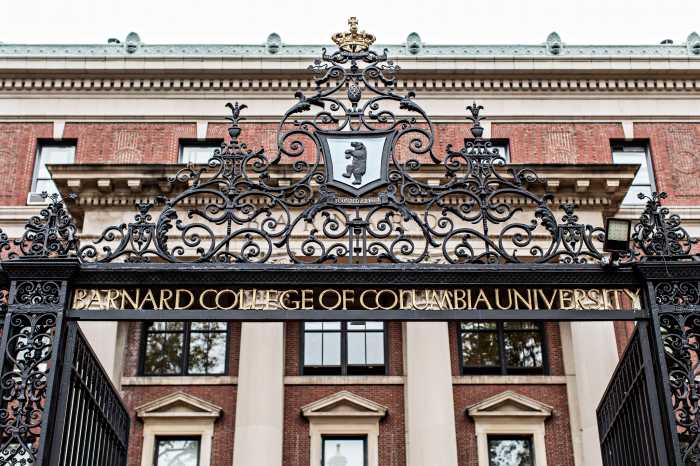BY BRENDAN O’BRIEN
Full-time students at Chicago’s Columbia College spend $14,000 a year for professional, hands-on training in dance, film and music that the school normally offers in studios and classrooms scattered across the city’s South Loop and Near South Side.
When the coronavirus pandemic led the school to move some coursework online this summer without reducing tuition, many students, including Isaiah Moore, cried foul.
A television and cultural studies major, Moore now leads a group of students holding campus demonstrations, circulating a petition and meeting with school officials in the hopes of a tuition cut and more transparency in the college’s finances.
“We want our tuition to reflect the way our education is being experienced now,” said the 21-year-old from New Jersey. “This is the time we need more unprecedented solutions to unprecedented problems.”
Moore is one of a growing number of U.S. college students pushing for their schools to cut tuition and fees because of reduced in-person classroom time and less access to on-campus resources.
The sky-rocketing cost of post-secondary education is a perennial issue in the United States. It intensified this spring when U.S. colleges and universities, in response to the COVID-19 outbreak, canceled classes and shut down campuses. Dozens of students filed lawsuits asking courts to force schools to issue refunds.
With two-thirds of American colleges moving at least some of their fall classes online, students have become more vocal in their objections, saying they are not getting the education they purchased.
Many colleges and universities, including Columbia College, have refused to reduce tuition, saying salary and maintenance costs have held steady, regardless of whether the institution is offering in-person or online classes or a hybrid model.
“For all three instructional methods, the college will be delivering all expected learning outcomes for courses and credit towards graduation,” Columbia College, which is not affiliated with New York’s Columbia University, said in a statement. It said it was providing a “well-rounded and rigorous fall semester.”
To be sure, some institutions have lowered tuition and fees, including Georgetown, Princeton and Northwestern University where fall tuition was slashed by 10%.
Even so, Northwestern’s cut has failed to satisfy 175 students who have signed a letter threatening a tuition strike beginning Oct. 1. In the letter, to be sent to the school’s president, the students demand officials reverse a 3.5% tuition hike implemented in June before the 10% cut was made, as well as further reduce tuition by at least 30%.
“Withholding tuition en masse is quite a large move, but we believe it is warranted given the level of crisis,” said one of the organizers of the protest, Alex Harrison, a 19-year-old sophomore who is studying journalism and political science.
The protesting students at the private university of 21,000 students in Evanston, Illinois, north of Chicago, are also demanding officials address issues involving housing contracts, financial aid, work-study and support staff while calling on them to use some of the school’s $10.8 billion endowment to help students through the pandemic.
Other college students have taken to online petitions to voice their frustration. Change.org says 1,500 petitions calling for college tuition reductions during the pandemic have been created on its site. The petitions have received closed to one million signatures since March, the platform said.
One of the petitions was started by Ava Yelton, a senior at the University of New Mexico, which is offering both in-person and online courses this school year.
Her petition, garnering 5,400 signatures, calls for a tuition and fees cut to match a “significantly” decreased amount of instruction, hands-on learning and opportunities to engage in extracurricular activities.
She said the Albuquerque school, which charges more than $8,000 a year for an in-state student, raised tuition 2.6% this year.
“It’s an unethical choice to not only maintain tuition, but to increase (it) during such uncertain times,” said the 20-year-old public health and psychology major.
David Vu, a 20-year-old student at the University of San Francisco, has led a movement on campus calling for a 4% cut to the annual $50,000 tuition and elimination of fees for unaccessible services after the school moved online for the fall semester.
The management major said some of his fellow students have created social media accounts to call for a tuition payment boycott while others have taken the semester off or have transferred to less expensive schools.
“It’s like the school and students are trying to call each other’s bluff right now,” he said.






































